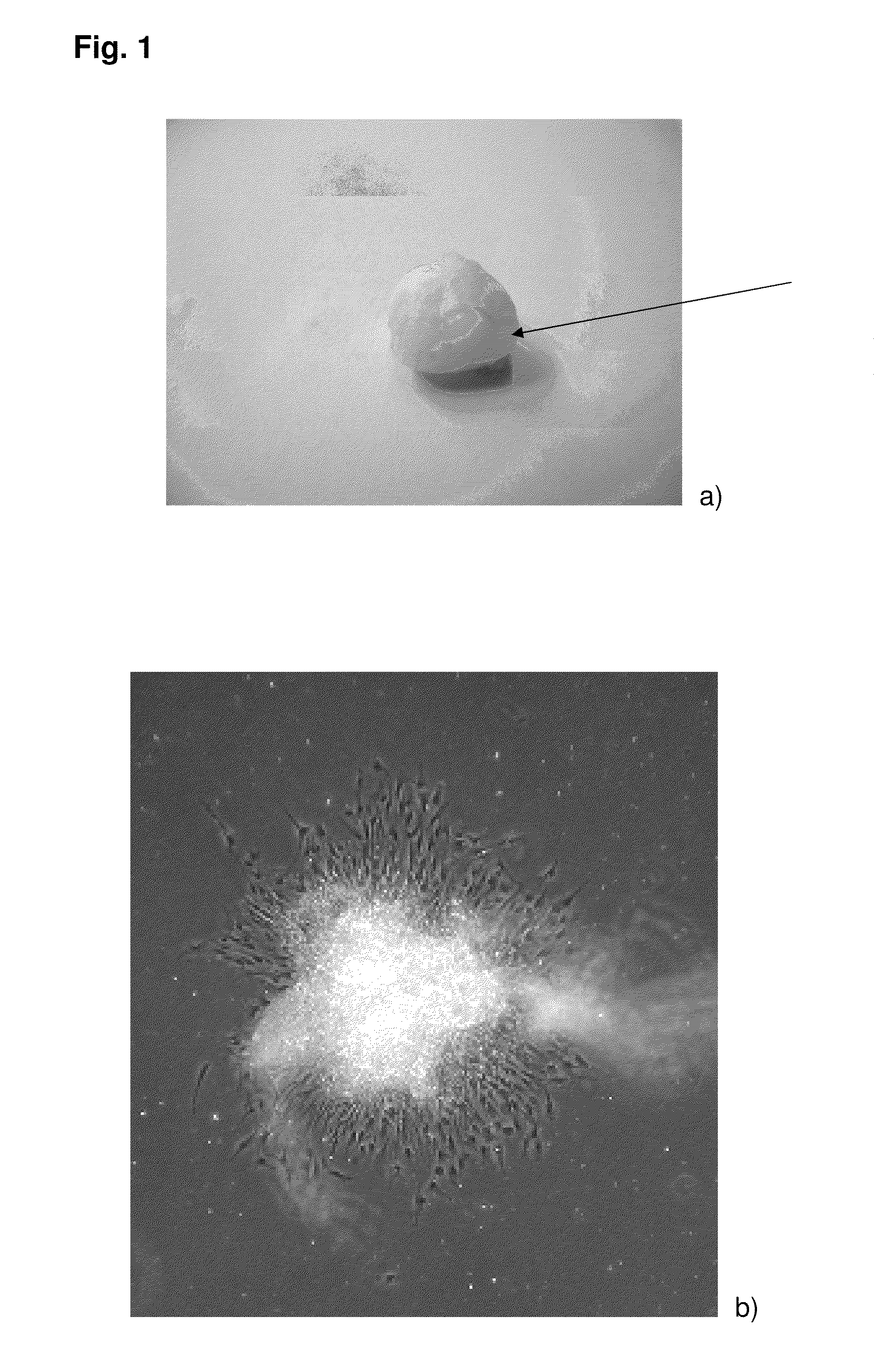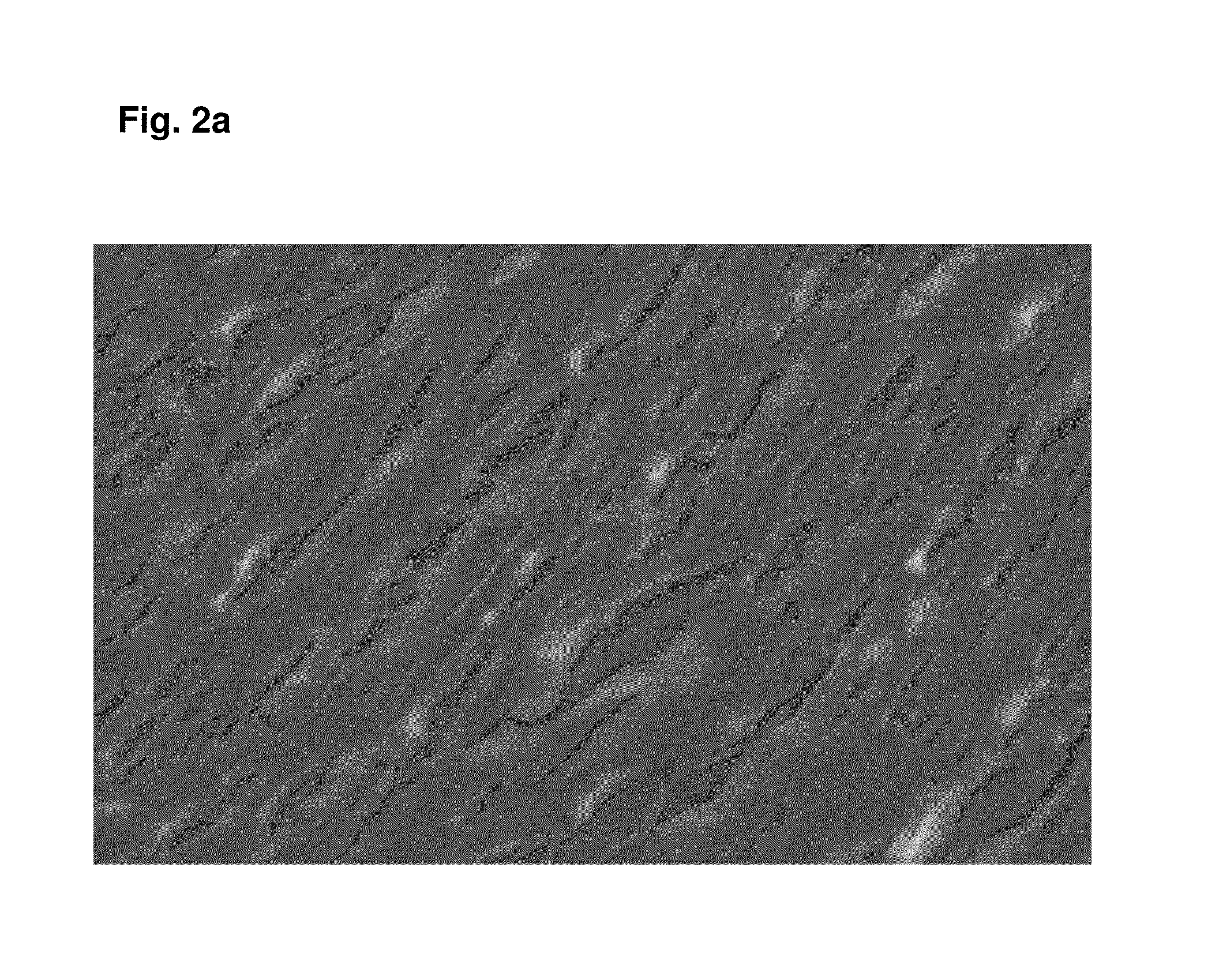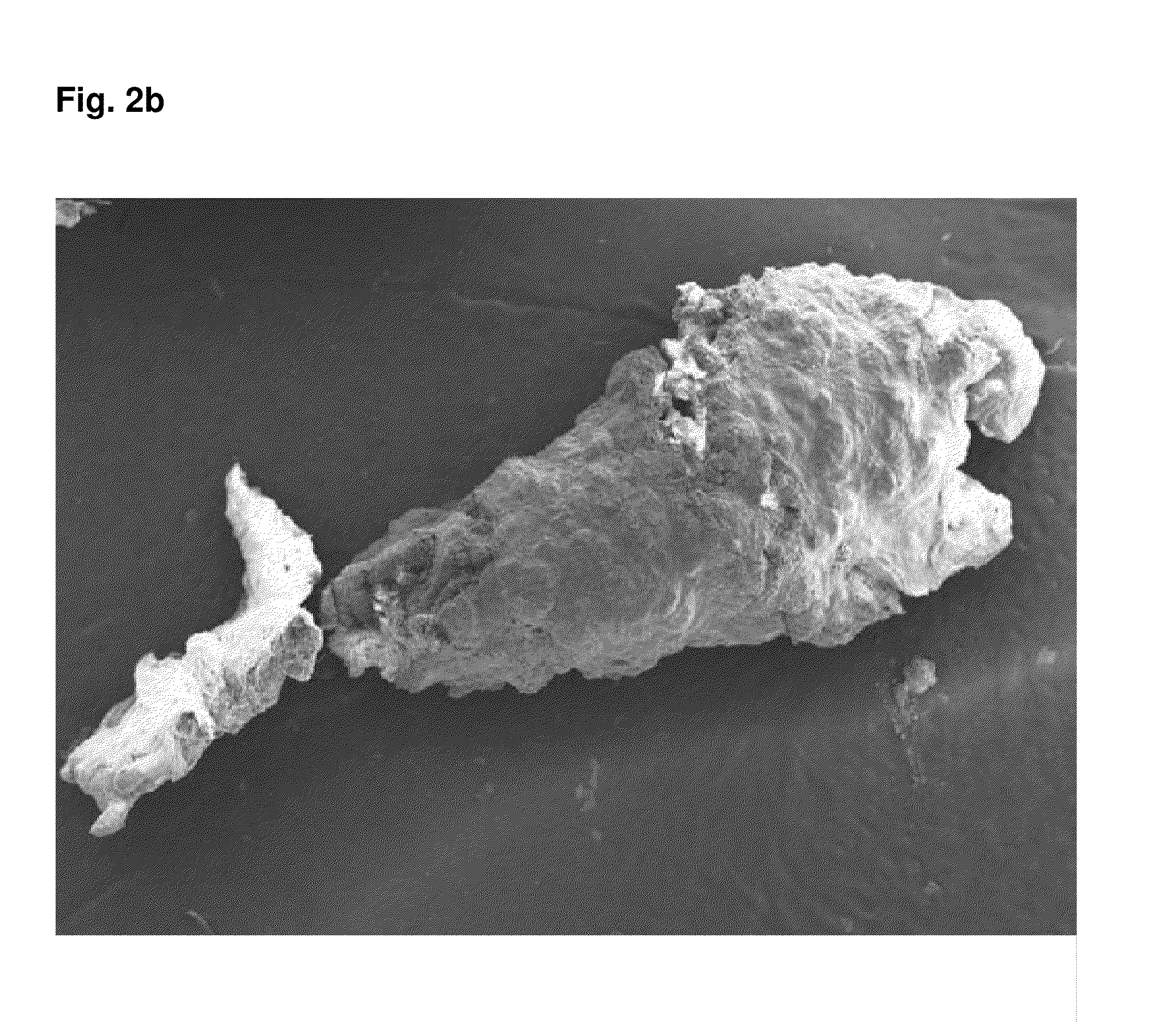Therapeutic composition, and use of a cell-free substance
a cell-free substance and composition technology, applied in the field of therapeutic composition, can solve the problems of chronic aseptic inflammatory reaction, unfavorable treatment effect, and inability to achieve the effect of high-efficiency preparation
- Summary
- Abstract
- Description
- Claims
- Application Information
AI Technical Summary
Benefits of technology
Problems solved by technology
Method used
Image
Examples
Embodiment Construction
[0031]Dental stem cells have a specific pattern of active substances which control the setup of various tissue types. In order to use this potency, an especially isolated subpopulation of human dental stem cells is stimulated in a cell-biological process to develop a tissue formation similar to that of a young bone. The thus formed highly specific matrix is subsequently prepared into a non-cellular product, which significantly accelerates the bone formation and thus the course of the healing phase and the in-growth behavior of implants. Thus, the special property of this matrix is used to stimulate, due to its composition, the complex bone formation in a wound in a physiologically correct manner.
[0032]In the first step, stem / progenitor cells are osteogenically stimulated under suitable conditions to make them form a bone-like tissue formation out of themselves. The osteogenic stimulation may, for example, take place by incubation or cultivation, respectively, of the stem cells with ...
PUM
 Login to View More
Login to View More Abstract
Description
Claims
Application Information
 Login to View More
Login to View More - R&D
- Intellectual Property
- Life Sciences
- Materials
- Tech Scout
- Unparalleled Data Quality
- Higher Quality Content
- 60% Fewer Hallucinations
Browse by: Latest US Patents, China's latest patents, Technical Efficacy Thesaurus, Application Domain, Technology Topic, Popular Technical Reports.
© 2025 PatSnap. All rights reserved.Legal|Privacy policy|Modern Slavery Act Transparency Statement|Sitemap|About US| Contact US: help@patsnap.com



